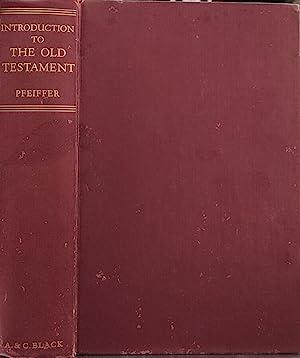

Robert Henry Pfeiffer (1892-1958) was born in Bologna, Italy. He received his MA and PhD from Harvard University. He was ordained as a Methodist minister in 1916 and held a pastorate in Sanborn, New York, from 1916 to 1919. In 1922, he was hired as a professor at Harvard University and he was appointed Hancock Professor of Hebrew and Other Oriental Languages in 1953. He also served as a professor at Boston University's School of Theology.
Pfeiffer is mainly known for his Introduction to the Old Testament (1941, 19522) and its sequel History of New Testament Times, With an Introduction to the Apocrypha (1949). These works and his The Books of the Old Testament (1957) show a marked influence of his major professors at Harvard, George Foot Moore and William R. Arnold. It was the influence of the latter and the writings of A. Klostermann that led him to isolate the earliest Hebrew historical source that includes II Samuel 9–20 and I Kings 1–2, published as The Hebrew Iliad with general and chapter introductions by William G. Pollard, and to claim that the priest Ahimaaz, the biographer of David, was "the father of history," history being defined as a narrative of past events dominated by great ideas. Pfeiffer's works in the field of Assyriology included The Archives of Shilwateshub (1932); Excavations at Nuzi, volumes 2 (1933) and 4 (with E.R. Lacheman, 1942); One Hundred New Selected Nuzi Texts (with E.A. *Speiser, 1936); and State Letters of Assyria (1935).
Pfeiffer wrote a number of papers on literary, philological, and historical critical problems of the Bible. His comments on New Testament subjects followed the methodology of his teaching, which was distinguished by a traditional Christian approach. He was editor of the Journal of Biblical Literature, 1943–47.
He was awarded a Guggenheim Fellowship in anthropology in 1928 and served as Annual Professor for the Baghdad School of the American Schools of Oriental Research (ASOR) from 1928 to 1929. Pfeiffer also served as the curator to Harvard's Semitic Museum. He is the author of numerous books, including Excavations at Nuzi (1929), Introduction to the Old Testament (1941), History of the New Testament Times, With an Introduction to the Apocrypha (1949), The Books of the Old Testament (1957), and Religion in the Old Testament: The History of a Spiritual Triumph (1961).